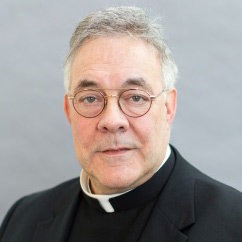This week’s Acton commentary looks at the trend by many in the charitable sector to become increasingly reliant on government support. Sign up for the free, weekly Acton News & Commentary newsletter in the form here (right hand sidebar).
—–
The independence of American charities has steadily eroded in recent years as more philanthropic institutions have come to see their mission as one of partnership or collaboration with the government. That’s a nice way of saying, “seeking government dough.” Now, in the throes of a severe economic crisis and budget cutbacks at state and local levels, many charities are in a panic about reduced levels of funding. Anyone with eyes to see could have seen this coming.
A recent report in The Chronicle of Philanthropy spoke of a California budget crisis where “charities there are braced for steep cuts to social services and health care.” In Chicago, one manager of a children’s home said, “We’ve never seen the likes of this.”
The growing dependence of many charities on government support has been accelerated by the federal government’s funding, over several recent administrations, of charitable organizations for managing various social service programs. This funding, its supporters argue, gives private initiative the resources it needs to accomplish good works — with a little extra help from the government. But at what cost?
What the federal funding has done, I fear, is turn too many philanthropic leaders into grant seekers, contract managers and lobbyists. Politicians, in turn, are picking winners and losers based on the self-serving calculations operative in budget negotiations. The result is a complex co-dependency of charity manager, politician and bureaucrat, all working together in the quasi-governmental entity known as the “public-private initiative.”
Smart elected officials and bureaucrats also know that a charitable sector dependent on the public treasury can also be a weighty and useful ally when it comes time to call in the political IOUs. In New York City, the number of people employed by arts, health, and social service agencies now approaches 500,000 with a total payroll of $19.7 billion, according to the Fiscal Policy Institute. Imagine mobilizing this force to advance political ends. Doubtful? Witness the recent flap at the National Endowment for the Arts over charges that the Obama administration was using the agency for political purposes.
We have strayed far from our American tradition of turning first to local, independent initiative to tackle social problems. I am reminded of Tocqueville’s observation, in his 1840 book Democracy in America, about the intensely local focus of social and political life. “What most astonishes me in the United States, is not so much the marvelous grandeur of some undertakings, as the innumerable multitude of small ones,” he wrote. Could Tocqueville have foreseen how eagerly many Americans sign on now for whatever sweeping plan emerges from Washington to “remake” the country?
The growing dependency of charitable work on government favors is also at odds with the great commandment we follow as Christians to, above all, love God and our neighbor “as yourself” (Matt. 22:37-40). We are to follow this commandment without hesitation. It does not require us to first seek a nonprofit tax exemption, a state subsidy, or a plaque from the mayor. Indeed, the history of Christian philanthropy, dating from Apostolic times, shows incredible selfless work — independent of emperor or king — in establishing orphanages, hospitals, hospices and the feeding of the poor from private giving motivated only by love of neighbor.
What is often lost from view today is the fact that most philanthropy is funded with private money. Still, in recent years, some legislators have worked to impose stricter legal limits on charities, expand red tape by adding new reporting requirements, and even suggest that a nonprofit’s tax-exempt status indicates a sort of “public entity” quality. And there’s more. Senators John Kerry and Jay Rockefeller are pushing a proposal to cap deductions taken by Americans in the top tax bracket to 35 percent. The Obama administration wants to cap deductions at 28 percent.
It is a double squeeze: Limit the amount of tax deductible giving that Americans can direct to charities while at the same time making these very same charities more dependent on politicians and bureaucrats.
In a Sept. 23 letter to Senate Finance Committee Chairman Max Baucus, more than a dozen leading charities appealed to him to “protect” the charitable deduction. “Limiting the value of the charitable deduction would hurt these efforts by creating a disincentive for individuals and households who give the most to charitable organizations,” they wrote.
I couldn’t agree more. But we must go beyond political calculations and lobbying efforts. American philanthropy, with its proud history of social service, the innumerable schools, hospitals and private welfare agencies it has built since the nation’s founding, must regain the spirit of independent, self sufficient mastery of its mission to create a more just and humane society. If we don’t regain that spirit soon, we may find ourselves serving not the neighbor in need, but the powers that be.

